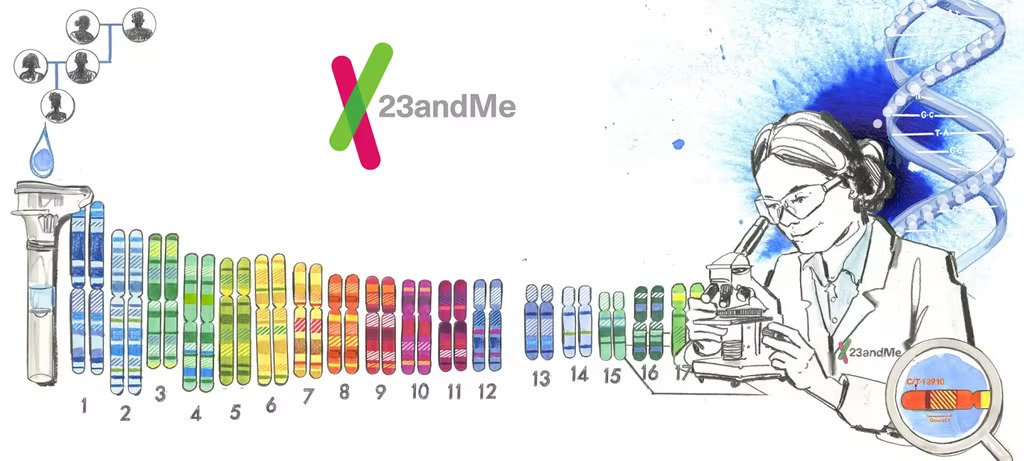
Image Source : www.innerbody.com
23andMe made a splash in 2006 as one of the first companies offering autosomal DNA testing for the average consumer. Individuals could send in a cheek swab and, in a few weeks, receive a complete breakdown of their DNA. It started as a tool for determining ancestry and has evolved over time.
Over the last almost 15 years, the company has collected a massive database of genetic material. Its most recent endeavor could change how the medical industry looks at drug development moving forward. Why is 23andMe getting into drug development, and how could it help shape the future of medicine?
It’s often joked that there is a reason that medicine is called a practice, but when it comes down to it, there is a lot of trial and error in determining what medications will work best for a particular patient. There are many variables to consider — several of which aren’t visible and may be hiding in someone’s genome. That is where the practice of pharmacogenomics comes in.
For those unfamiliar with the science, pharmacogenomics is “the study of how a person’s unique genetic makeup influences their response to medication.” An individual’s genome can determine how medicine is administered and how effective the results are. This is incredibly common in psychiatric drugs. It can take multiple tries to find something that can effectively treat depression or other chemical imbalances in the brain. Pharmacogenomics removes the trial and error, making it easier to find the perfect medication to achieve the best results.
This sort of pharmaceutical research relies on a lot of very delicate variables. Anything, from a slight variance in temperature to oil contamination from air compressors, can ruin an experiment and leave researchers scrambling to try again. Commercial-grade air and nitrogen compressors can help prevent these problems and allow researchers studying pharmacogenomics to complete their work. It doesn’t eliminate all the variables that could potentially impact an experiment, but it does provide a modicum of control.
In 2018, 23andMe joined forces with GlaxoSmithKline (GSK) with the goal of improving the probability of success of new drug development and trials. Previous studies showed that only about 10% of new molecular candidates for drug trials are traditionally approved, and introducing genetic support can nearly double the potential for approval.
In 2020, the joint efforts of GSK and 23andMe were able to advance potential first-in-class cancer treatment. They used genetic data from consumers who had opted in and allowed their genetic information to be used for scientific research.
23andMe went public in 2021, and while the stock started low — around the $10 level — this push toward drug development means investors can expect the company to be a great long-term investment option. Currently, GSK and 23andMe have an immuno-oncology drug that is working through Phase 1 studies. If it proves successful, investing in this sort of collaboration could be a wise choice moving forward.
This sort of drug development could become standard practice in the future, with the potential to turn the entire biotech industry on its head. Currently, drug development — not unlike prescribing the psychiatric meds mentioned above — is a lot of trial and error. Tools like the massive genetic database that 23andMe has gathered over its years of operation could be invaluable.
Some additional steps will be necessary here, such as contacting anyone who hasn’t already opted into using their genetic information for drug research. However, the hurdles aren’t insurmountable.
Pharmacogenomics is in its infancy, but this science may change how the medical industry researches new drugs and treatments. 23andMe isn’t the only company collecting genetic information for decades, but it is the only one actively working on using that information for the betterment of humanity. While the industry is a long way off from creating individualized drugs or treatments based on a person’s genetics, the potential is there. This is an exciting time to work in drug research and medical development.
Pharmacogenomics has the potential to change the way new drugs and treatments are discovered. Still, the fact that it relies on genetic information — something people need to opt in to have used — presents some hurdles when it comes to the widespread adoption of this sort of research. When genetic information becomes valuable, it can become a saleable commodity — but that is a conversation for another time.




